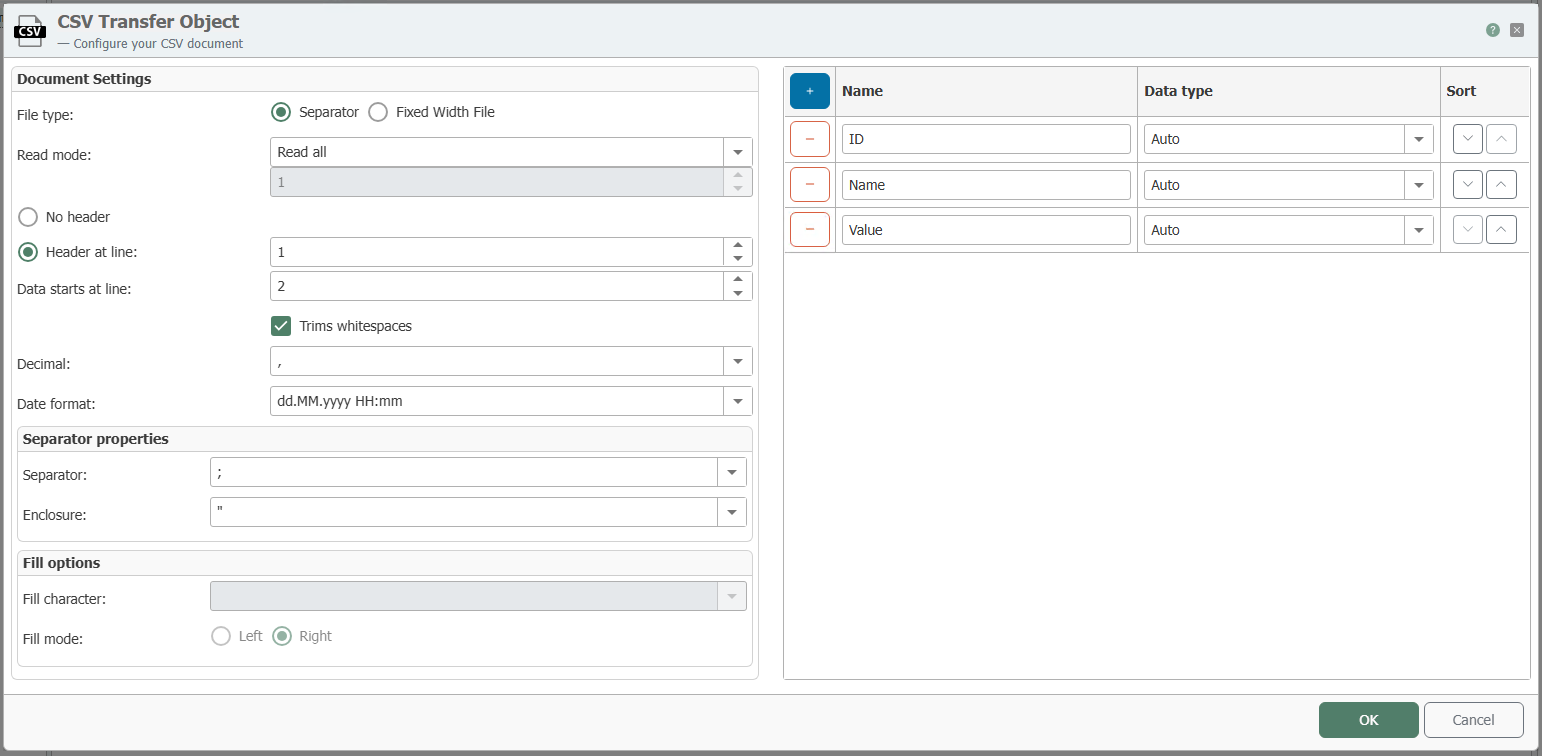CSV Transfer Object
CSV transfer objects can read, analyse and write strings. There is no plug-in configuration required. You can directly configure the transfer object within the connection as described.
After double-clicking on the transfer object, set the following properties:

CSV Transfer Object
Attention: The CSV transfer object can only read and write CSV strings. To read and write CSV files you need to use the File Read and File Write transfer object additionally to the CSV transfer object.
| File type | Select Delimiter if your data is seperated by a defined delimiter like a semicolon. Select Fixed Width File if the columns has a defined, fixed width. |
| Read mode | Select which part of the CSV string you want to read Read all: Reads the whole document Read first n: Reads the first rows of the CSV document. (Select the amount of rows) Read last n: Reads the last rows of the CSV document. (Select the amount of rows) |
| Header | Select if the document has got a header. Also select the line number of the header |
| Data starts at | Select the number of the row where the data starts. |
| Decimal | Select the sign which is used in decimal digits. |
| Date format | Select the date format. You can also create your own format. |
| Delimiter | Select the delimiter of you CSV string. |
| Enclosure | Select the enclosure of your CSV document. |
| Fill character | Select the sill character. This character is user if you have selected Fixed Width File and it is the character which is used for unused space. |
| Fill mode | Select where the fill character should fill up the empty spaces. |
On the right side you can define the data fields of the CSV string.
The names of the data fields need to match to the header names. You don't need to define every value of the header. If you have a CSV string with fixed file width, the field size need to match the field size of the csv string.